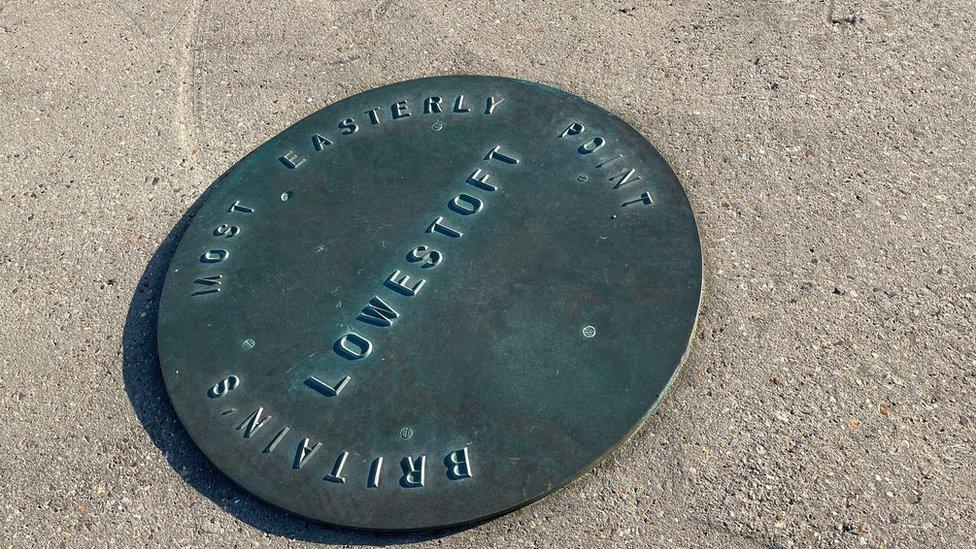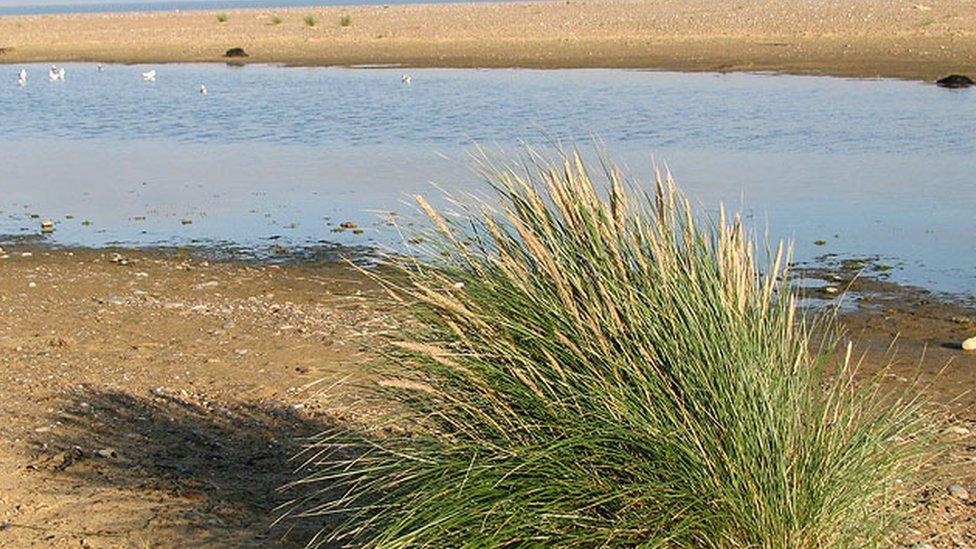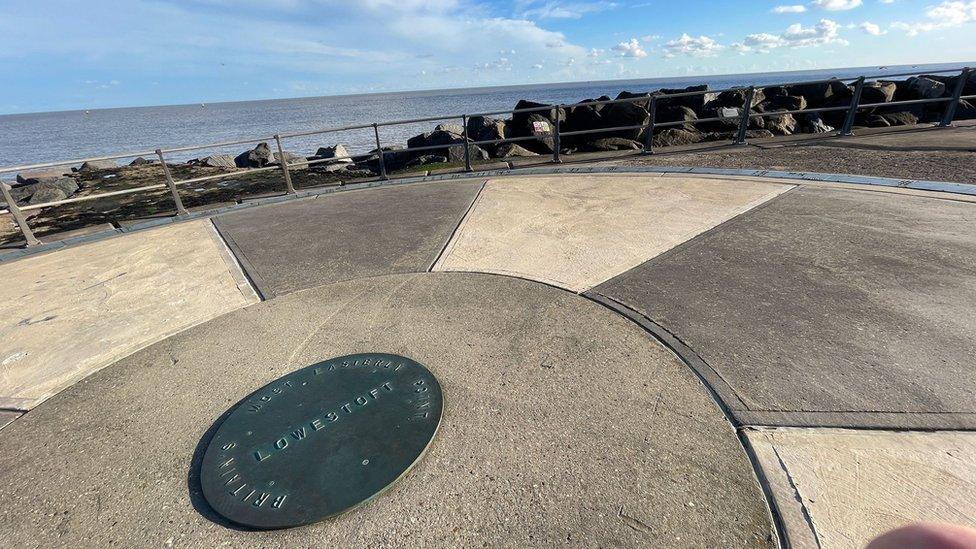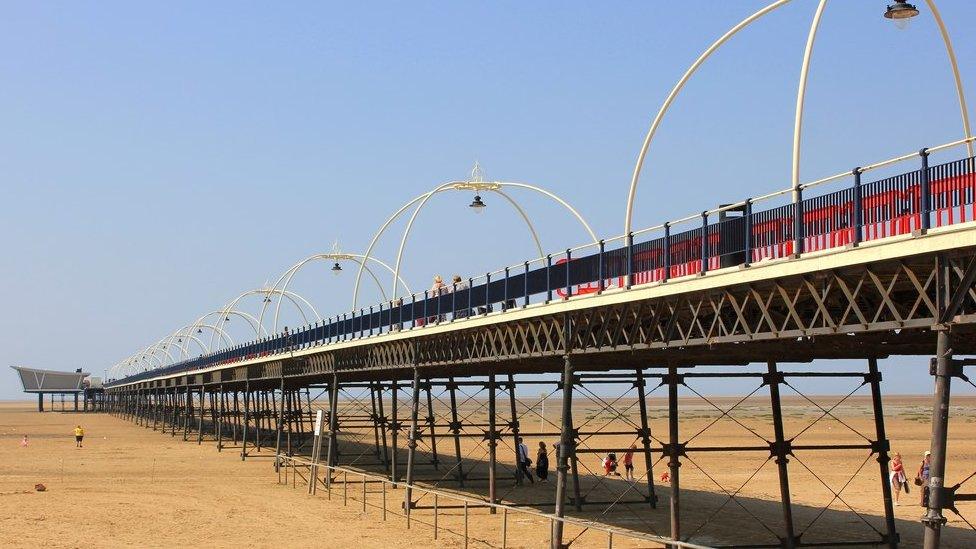Lowestoft challenged by Kessingland for 'most easterly point' crown
- Published

The plaque at Lowestoft's Ness Point marks its official title
Villagers have been vying with a nearby town for the title of the United Kingdom's most easterly point.
Ness Point in Lowestoft, Suffolk, is officially the most easterly point but faces a challenge from Kessingland, four miles (6km) to the south.
Some villagers claim shifting sands have changed the landscape so much that its beach now extends further east.
However, mapping agency Ordnance Survey said Ness Point remained the most easterly point.

The spit of sand and shingle that has been building up at Kessingland has changed the shape of the coastline, locals say
Former fisherman Alan Woodgate, from the village, is among those who have noticed the build-up of a sand spit over the years.
"I think Kessingland is the most easterly point now - the bed has come out so much," he said.
"The maps haven't caught up with what's happened.
"If you stand at Pakefield or Lowestoft and look at Kessingland, it's further out than the pier is."

Rob Reid said he believed the electronic maps that he used to chart his runs were now out of date
Ness Point is believed to have been named as Britain's most easterly point in the early 1800s, but some Kessingland villagers think new geographical surveys are required.
Rob Reid, who runs on Kessingland beach, said: "If I do this recording on my running watch, if I later look at a map it will show me out to sea, so the map line that is official is out of date.
"It would be nice to keep Ness Point as the most easterly, but Kessingland does now look like it's rivalling it."

Lowestoft deputy mayor Nasima Begum said Ness Point was well known for being Britain's easternmost spot
Ness Point is marked with a plaque and markers showing distances to other places.
Lowestoft's deputy mayor Nasima Begum said a £1m government grant had helped to improve the area with a new park, and there were plans for a cafe.
"It is known as the most easterly point - we can't just suddenly change that," she said.
Martin Dunne, of Kessingland Parish Council, also believed Ness Point should retain its official title.
"Every tide is different and the storms come in and bring a lot of sand in and the next storm, in a different direction, takes the sand away," he said.
"Lowestoft Ness is stable - I've known [it] for the last 70-odd years and it hasn't moved."

The UK's official most easterly point at Lowestoft is marked with a Euroscope, made up of plaques noting distances to different locations
A spokeswoman for Ordnance Survey said it was understood no new surveys were being planned.
"From current data, at high tide the most easterly point of mainland Britain remains Ness Point because effectively you can always stand on the land," she said.
She said tide changes meant this would not always be possible on the sand bars off Kessingland.

Find BBC News: East of England on Facebook, external, Instagram, external and Twitter, external. If you have a story suggestion email eastofenglandnews@bbc.co.uk
Related topics
- Published8 October 2021

- Published8 September 2021

- Published3 April 2017
